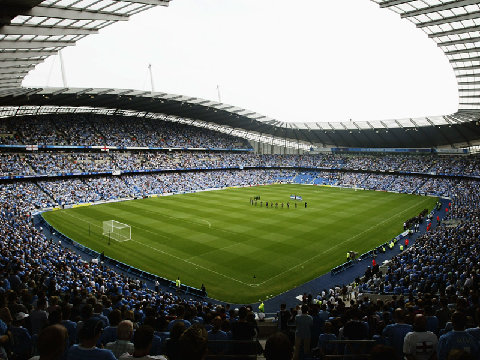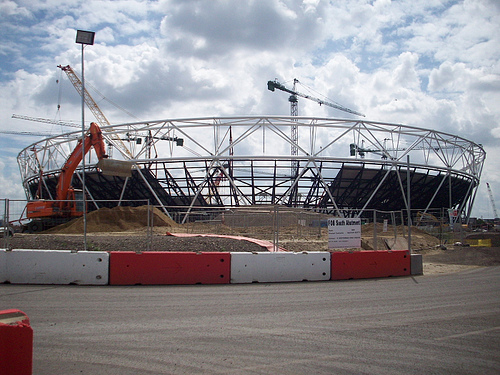By Tom Degun in London
June 8 – A group of experts today told the London Assembly’s Economic Development, Culture, Sport and Tourism Committee that Premier League West Ham United are the obvious candidates to provide the most economically viable future for the London 2012 Olympic Stadium post-Games in the midst of a recession.
The experts questioned by the Committee at City Hall were Danny Meane, from New Media Partners, Dr Larissa Davies, from the Sports Industry Research Centre at Sheffield Hallam University, Dr Jim Coleman, an economic development expert at Regeneris Consulting, and Pete Winkelman, the chairman of League One club MK Dons.
Despite a variety of interest in taking over the Olympic Stadium, including a bid from American entertainment giant AEG, who operate the O2 Arena, the four told the Committee that a top football club such as West Ham is best placed to create revenue from the stadium after the Games as they will be able to guarantee fans turning up on a regular basis.
Winkelman said: “A football club such as West Ham would be able to run the Olympic Stadium independently as they will be able to create revenue from ticket sales and merchandising and would not need any extra Government funds.
“A future for athletics is obviously very important regarding the Stadium because the original plan in securing the 2012 Games in London was to have the stadium host athletics after the Games.
“However, those promises were made in a different financial climate to the one we live in now and it is not enough to have a stadium of this magnitude host two or three athletics meets a year.
“The stadium needs to have day-to-day running after 2012 to ensure it does not become a white elephant and a Premiership football club is the most obvious candidate to be able to ensure that.
“It would be great if there could be more than one use for the stadium like football and athletics but that it is used on a regular basis is the priority.”
Davis added: “If you look at the example of the City of Manchester Stadium, it was converted from an athletics track to a football stadium after the 2002 Commonwealth Games and that has been a huge benefit to the area financially and in terms of helping the local community.

“That example is proof of the fact that a Premiership football club can successfully run a large stadium in an economically viable way.
“I feel that the Stadium has far too much iconic value to simply tear down and it must therefore be used as a stadium with a Premiership football club such as West Ham probably offering the most risk-free future for it.”
The four also discussed the future of the 800,000 square foot London 2012 International Press Centre (IPC) that is still under construction at the Olympic Park and claimed it could well stay as a media centre post-2012 so long as it has the right occupants.
Meaney said: “The media centre could become a home for a variety of media organisations after the Games because it is located in East London where the media industry is slowly moving.
“As long as it is made affordable for businesses to move there, the centre will have all the features in place to make it a great location for the media to work in.”
Coleman added: “Our research shows that there is a lack of business space in London and with a huge new business space coming to East London in the shape of the media centre, it could really help solve part of that problem.
“However, just because it’s a media centre for the Olympic Games, it doesn’t necessarily have to be a media centre after the Games.
“The location of the Olympic Park may be complementary to most international media outlets but it provides opportunity for other businesses too so it is a vital decision in choosing the future of such a building.”
Contact the writer of this story at zib.l1745200126labto1745200126ofdlr1745200126owedi1745200126sni@n1745200126uged.1745200126mot1745200126
Related stories
May 2010: Exclusive – Money will not decide if West Ham gets Olympic Stadium claims legacy company
May 2010: West Ham bid to take over Olympic Stadium supported by London 2012 architect
May 2010: West Ham Olympic Stadium bid boosted by UK Athletics boss
May 2010: West Ham face challenge from AEG for Olympic Stadium
April 2010: Essex Eagles set to join West Ham in swoop for Olympic Stadium

